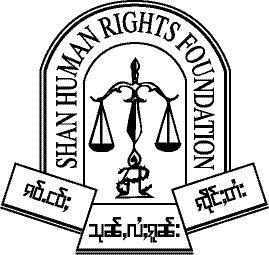Apart from areas where there are still fighting, incidents of killings and rapes by the Burma Army have “noticeably reduced” but beatings and forced labor have worsened in many peaceful places, reports Shan Human Rights Foundation (SHRF) in its November report.
 According to it, “deliberate and direct attacks on the civilian population eg killing, shooting, raping, collective torture and detention etc have noticeably reduced.
According to it, “deliberate and direct attacks on the civilian population eg killing, shooting, raping, collective torture and detention etc have noticeably reduced.
“Nevertheless, other types of abuses such as beating, stealing, confiscation, extortion and forced labor etc not only have decreased but have become worse even in many peaceful places. Many Burmese military authorities seem to be still enjoying using their fists, boots and sticks on ordinary civilians, though they may no longer be able to be as trigger-happy as before.”
Beatings of people in several townships: Kunhing, Mongton, Laikha, Mongkeung and Mongnai, where the Shan State Army (SSA) ‘South’ is active, are included in the report.
The SSA South reached a ceasefire agreement with Naypyitaw on 2 December 2011.
The agreement, however, has not stopped the Burma Army from launching search-and-destroy missions against the SSA.
In February, says the report, the Burma Army attacked an SSA camp in Mongpulong tract, Mongpiang township. The rebels fought back and retreated into the jungle after killing 3 Burma Army soldiers, including a sergeant.
“Angered by their loss, the Burmese soldiers dropped 6 rounds of 60 mm mortar shells into Waeng Hawng village, which they believed was where the Shan soldiers got their food.”
Continued abuses in rural areas were the reasons why people are still fleeing into Thailand, according to an aid worker on the Chiangmai border. It is estimated that at least 1,000 people are arriving monthly in Maehongson, Chiangmai and Chiangrai, provinces adjoining Burma’s Shan State.
The biggest influx was in 1996-98, the three year period when the Burma Army waged a massive campaign to forced relocate over 300,000 people from 1,500 villages in 11 townships.



